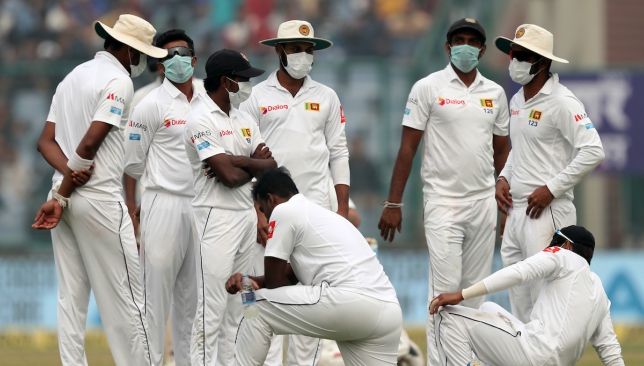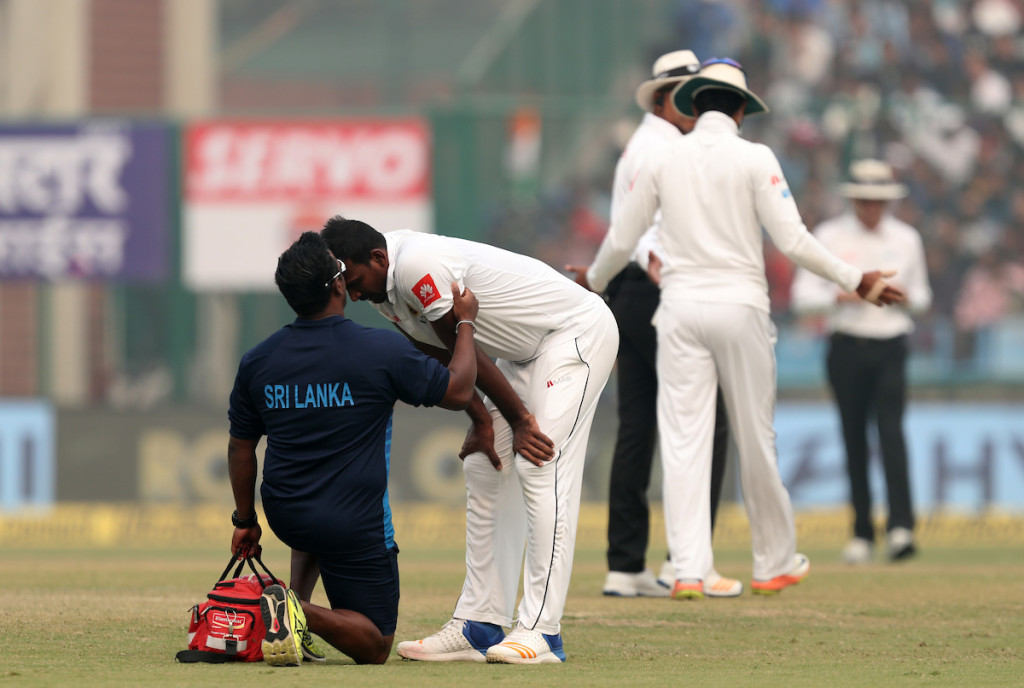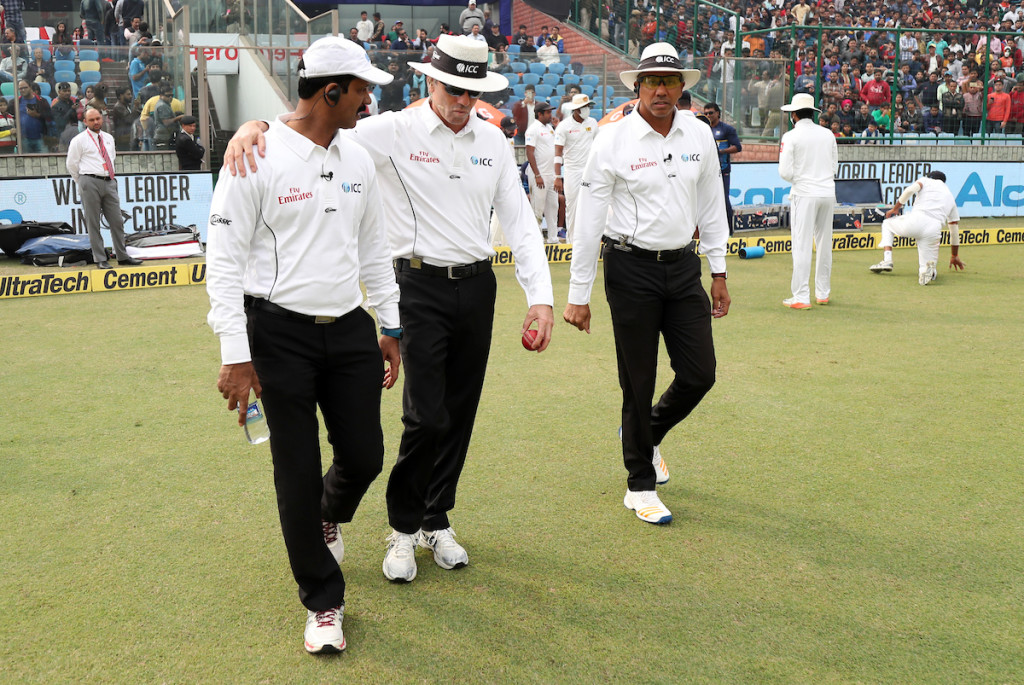
The final Test between India and Sri Lanka at the Feroz Shah Kotla stadium in New Delhi has been making headlines for all the wrong reasons.
Day two of the Test saw a dramatic sight perhaps never seen before on the cricket field. Sri Lanka’s fielder took to wearing surgical masks in a bid to withstand Delhi’s worsening air quality in the face of excessive pollution and smog.
Sri Lanka pacer Suranga Lakmal stopped in his run-up as he started coughing and had to leave the field to receive medical attention. Three times play was stopped as the visitors complained of struggling with difficult conditions.
The Indians were clearly not happy with the disruptions and skipper Virat Kohli expressed his displeasure in clear terms by throwing away his bat in disgust. Head coach Ravi Shastri came charging onto the field to have a word with the umpires. The Delhi crowd meanwhile aimed their taunts at the islander as chants of ‘losers, losers’ echoed around the Feroz Shah Kotla stadium.

Sri Lanka’s bowlers coughing up on the field wasn’t a pretty sight.
The general feeling among the Indian camp was that the Sri Lankans were playing up the situation to kill some valuable time in the Test.
The BCCI also made its stance clear on the subject when acting president CK Khanna made a statement to the media at the end of the day.
“If 20,000 people in the stands did not have a problem and the Indian team did not face any issue, I wonder why Sri Lankan team made a big fuss. I will need to talk to the secretary and ask him to write to the Sri Lanka Cricket,” he said.
Sri Lanka coach Nic Pothas had a completely different point of view though as he narrated the ordeal his players had to go through.
“They had got extremely high at one point, we had players coming in at one point and vomiting. There were oxygen cylinders in the dressing room,” said the coach.
“It is not normal for players to suffer in that way while playing the game. From our point of view it has to be stated that it is a very unique case. We had to play cricket. Under all circumstance, we wanted to play cricket. We just wanted to have some clarity on the safely of players,” he added.
There is a possibility that Dinesh Chandimal’s men might have overplayed the situation but there is simply no denying that the pollution levels in Delhi are at a hazardous level at the moment.

The match officials were put on the spot with the fiasco.
The Air Quality Index (AQI) spiked to 368 on Monday morning with the met department warning that it is expected to cross 400 in the coming days. For the record, the AQI at the same time at Adelaide where the second Ashes Test is currently underway hovered between two to six.
What’s currently happening in Delhi is unprecedented in the history of the sport. Games have been delayed or interrupted due to bad lights and inclement weather but never before has one heard about a match being stopped due to pollution.
It is one for the BCCI as well as the ICC to moot. For the BCCI, the question is why Delhi was awarded a game in the first place in peak winter when smog levels are at their highest and air quality at its lowest.
For the ICC, it will be wise to chart a course of actions for such incidents in the future and set some guidelines with regards to air quality levels in future matches. With no precedent in the past, the match referee at Delhi was put in a tight spot with both sets of team conflicted on the matter.
The health and safety of the players, officials, staff and fans should be paramount and while what happened on Sunday was not something we like to see on a cricket field, it is definitely one the ICC and the BCCI cannot ignore.